Politics
Can Death Penalty Reduce Corruption ? (II)
In the case of China, as of 2005, more than 4,000 officials fled the country, taking with them nearly US$50 billion. Since China does not have extradition agreements with most of the countries harbouring the fugitives, they cannot be always brought back to face Chinese justice. Also, many of these countries do not hand down the death penalty for corruption. So extraditing the fugitives would be tantamount to sending them to death row.
China’s legal experts have even suggested abolishing the death penalty for corruption.
It’s true that about half the world have abolished capital punishment altogether and the other half that still have their hands are only for heinous crimes like murder. So we can see that having the death penalty in place for corruption will strain our relationship with countries where these criminals normally carry their loot.
However, I will admit that I have never heard of any Nigerian corrupt official being extradited from the UK, the US or any other country in the last 50 years, despite the agreements we have with such countries. The problem is that no Nigerian Government has ever asked for this important bi-lateral cooperation to be applied. And the simple reason is that no Nigerian administration, military or democratic, has ever been sincere about fighting corruption. In fact, the Administration itself, in most cases, is corrupt. And it is in their interest not to seek the extradition of such criminals.
Corruption, rampant and prevalent as it is, poses a serious threat to Nigeria’s political stability and sustainable development. Hence, it warrants utmost care and sincerity in its handling, especially at a time when the government is seeking to be in good relationship with the larger world, and also with its “re-branding” efforts to position Nigeria right.
Besides, I doubt if this current Government and the ruling party, PDP, as we currently have both, are not even in the position or have the vision, capability, political and moral will to even advocate and implement a death sentence for corruption.
This is because both the government and the governed have not been sincere and truthful about fighting corruption. The political will has never been there; even as we gave credit to Obasanjo for taking the first ever step to fight corruption by creating the tools: EFCC and the ICPC. The absence of this political will therefore negates the call for the death penalty to fight our endemic corruption problem.
There are other social, moral and economic issues which must be addressed first before we can talk of prescribing death sentence for corrupt practices. The government and the ruling party must be seen to be more sincere in fighting corruption by continuously and vigorously exposing and prosecuting criminals, and not shielding them. The judiciary must be cleaned up; the Nigeria Bar Association must deal with its errant members who are stifling the corruption fight in courts, while the government must also pro-actively tackle poverty, unemployment and illiteracy.
Also, government office or public service must not be seen as a quick route to making money. Hence, the salaries and other remunerations of political office holders must be pruned in such a way that only those who really want to serve will be the ones going for these positions.
Get me right. There are some corrupt public officials and politicians who should be lined up by the wall and shot. I say this because if we carefully consider the effect of their corrupt practices on our lives, wellbeing and survival, these people have also committed genocide, directly or indirectly against millions of Nigerians.
However, methinks the whole idea of death penalty for corruption is fraught with danger, the danger being the application of this very severe penalty and the systemic, intrinsic corrupt society we have itself such as the lawmakers who are going to make the law; the enforcement agencies who will investigate the crime, the judiciary who will try the corrupt criminal and the lawyers who will defend or prosecute the case etc.
There must be a bribe giver to have a bribe taker. Also, it stands to reason that you cannot be a part of the problem and at the same time be part of the solution.
Adejumo is the global co-ordinator of Champions for Nigeria.
Akintokunbo A. Adejumo
Politics
Kano Gov Approves N15.6bn To Settle Ex-APC Councillors’ Entitlements
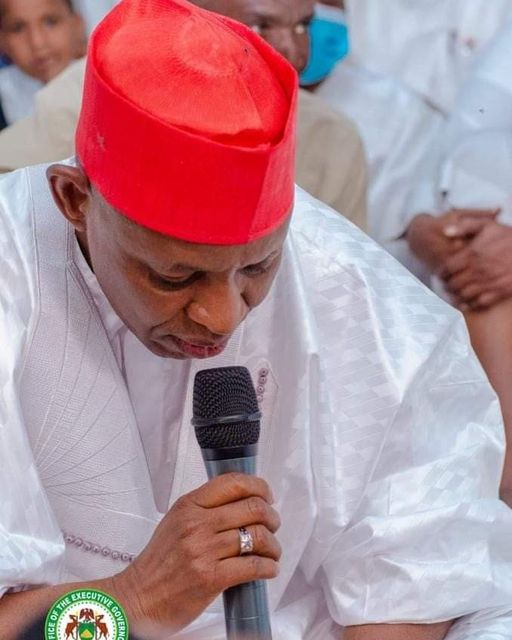
Governor Abba Yusuf of Kano State has approved the release of N15.6 billion for the payment of outstanding severance gratuities, accommodation, and leave allowances owed to over N3,000 former councillors across the State’s 44 local government areas.
The approved payment covers councillors who served during the periods of 2014–2017, 2018–2020, and 2021–2024 under the administration of former Governor Abdullahi Ganduje. The entitlements, which remained unpaid for years, will now be disbursed in three installments between April and June 2025.
In a statement issued by the Special Adviser on Information to the Governor, Ibrahim Adam, the administration described the move as a corrective measure to address the neglect of past leadership and fulfil a promise to ensure fairness to public office holders.
“The approval of N15.6 billion is in fulfilment of Governor Abba K. Yusuf’s commitment to ensuring that all outstanding entitlements owed to our dedicated public servants are fully paid. It is a matter of principle and justice to uphold the dignity of those who have served in elected positions”, Mr Adam said.
He noted that the financial intervention reflects the governor’s broader vision of governance rooted in fairness, accountability, and public trust.
“His Excellency recognises the sacrifices and dedication of these former councillors. This action is part of a larger effort to right the wrongs of the past and restore faith in public administration,” he added.
Local government officials and affected former councillors have welcomed the decision, describing it as long overdue and a step toward healing the financial frustrations of many grassroots leaders.
Governor Yusuf’s administration, elected on a different political platform than his predecessor, continues to draw commendation for its proactive efforts to resolve inherited liabilities and improve the welfare of public servants.
As the payment schedule begins, it is expected that this intervention will offer financial relief to thousands and stimulate local economic activity across the state.
Politics
Gunmen Disrupt Political Rally In Bayelsa ….As Turnah, Others Emerge New Associates’Leaders
Scores of spectators and political faithful were hospitalised after a yet to be identified gunmen invaded a rally organised by a group loyal to the Minister of the Federal Capital Territory (FCT), Chief Nyesom Wike and President Bola Tinubu in Yenagoa, the Bayelsa State capital.
Part of the activities scheduled to hold at the occasion was the inauguration ceremony of the Bayelsa State chapter of the ‘New Associates’, a pro-Wike political forum.
The Tide which monitored the event reports that trouble started just at the preparatory stages of the event, when the unidentified gunmen launched sporadic gunshots from a farm close to the venue of the event, injuring unsuspecting spectators and party faithful across party lines.
However, calm was restored after a swift intervention by men and officers of the Nigeria Police Force and other security formations which enabled the event to go on as planned.
Speaking to newsmen shortly after restoration of calm, factional South-South zonal Secretary of the Peoples Democratic Party (PDP) and Chairman, Caretaker Committee of the State’s chapter of the party, Barrister George Turnah, commended security operatives for their timely response.
He noted that the plan of detractors had been defeated as forces loyal to certain individuals in the State never wanted the rally to hold as scheduled.
Turnah, who doubles as Convener of the ‘New Associates’ in the State, commended President Tinubu and Chief Wike for the appointment and facilitating the same for Ijaws across the Niger Delta region.
He said, but for the love of the duo for the Ijaw people of various extractions, the Presidency would not have given preferential political portfolios in the Federal Government’s Ministries Departments and Agencies (MDAs) to Ijaws even though the ethnic nationality produces bulk of the natural resources for the economic mainstay of the nation.
The PDP chieftain reiterated that the reason for the event which was attended across party lines was to say ‘thank you’ to the two political leaders, stressing that to ‘whom much is given, much was expected’.
“For me, I’m of the larger opposition party, PDP. But I’ve decided to support and work for President Tinubu for what he is doing for the Ijaw nation, Niger Delta region in particular and Nigeria in general.
“President Tinubu has given Bayelsans and other Ijaws across the Niger Delta region several juicy political appointments. He appointed our brother and son, Heineken Lokpobiri as Minister of Petroleum even though former President Muhammadu Buhari had previously appointed a Bayelsan as Petroleum Minister in his government.
“Apart from the Petroleum Minister, Tinubu has also appointed Ijaw sons, Chief Boma Iyaye as Executive- Director, Finance, and Dr Samuel Ogbuku as Managing-Director and CEO of the Niger Delta Development Commission.
“Though former President Buhari had appointed Ogbuku initially in Acting capacity, when President Tinubu came, even after sacking all board members of the Commission, he still kept our brother, the MD and upon the completion of his tenure in Acting capacity, the President again reappointed him as substantive MD/CEO.
“But there’s one man who has made all these appointments for Ijaws possible. He is the FCT Minister, Nyesom Wike. Ijaw people, Bayelsans are we not enjoying these appointments?
“Has the NDDC not lit up the entire Niger Delta region? Are you not feeling the impact of the Ogbuku-led NDDC? So for me and all the members of the New Associates we’ve decided to support President Tinubu for a second tenure so that our state and region can benefit more from his government”, he said.
“We want Governor Douye Diri to tell us his stand on the forthcoming 2027 general election. He should tell us whether he is supporting the President or not. If he’s supporting the President, we’ll work with him. After all, Diri was the first Governor from the South-South zone that benefitted from the President’s magnanimity during the 2023 elections and even in terms of infrastructure projects and appointments of Bayelsans at the Federal level”, Barr Turnah added.
In his remarks, Chairman of the occasion, and leader, Rivers Ijaw Peoples Congress (RIPCO), Senator George Sekibo, lauded President Tinubu and the FCT Minister for their love and friendship with the Ijaw people.
Represented by former Chairman of Akuku-Toru Local Government Area of Rivers State, Dr Roland Sekibo, Senator Sekibo said the ‘New Associates’ political forum was to galvanize support for the President for his 2027 election.
He said while President Tinubu had performed well as Nigeria’s leader, the FCT Minister had continued to show leadership from the federal level after showing the same in Rivers State while serving as governor.
“I like to thank the convener of the ‘New Associates’ political forum in Bayelsa State, Barr. George Turnah (MON) and the Coordinators for standing firm in spite of threats from highly placed political leaders not to hold this event.
“Love is not theoretically, but must be expressed, which explains why they have gathered to celebrate their Excellencies, President Tinubu and Barr. Ezewon Nyesom Wike for the various roles they have played and have continued to play to ensure the appointment of Ijaw sons and daughters to positions of trust and authority at the federal level.
“The ‘New Associates’ is in synergy with President Tinubu and will continue to follow directives from the FCT Minister who has openly declared support for Mr. President”, he said.
Ariwera Ibibo-Howells, Yenagoa
Politics
Enugu LP Loses Pub Sec To PDP
The Publicity Secretary of the Labour Party (LP) in Enugu State, Mr Titus Odo, has defected to the Peoples Democratic Party (PDP).
Mr Odo defected to the PDP on Wednesday alongside the former Commissioner for Chieftancy Affairs in the State, Emeka Mamah, who was the state Coordinator of the Peter Obi Presidential Campaign in the 2023 presidential election.
The duo dumped the PDP during the 2023 general elections for the Labour Party.
Receiving the defectors at the party’s state secretariat, the state PDP Chairman, Martin Chukwunwike, expressed happiness over their decision to return to their former party.
He explained that Governor Peter Mbah gave them the directive to do everything possible to bring back aggrieved party members who left the party.
“We are happy to have them in our midst, and God has set this party on a good footing, as 2027 is already assured,” he said.
The PDP chairman, however, called for unity within the party to package themselves ahead of the 2027 elections.
Speaking during their presentation to the party state chairman, Mr Odo expressed joy for returning to his former party, revealing that Mr Mbah’s massive development in the State informed his decision.
“I am happy to tell you that I am back to my home. I came back because of the giant development strides of Governor Mbah and I say kudos to him.
“The second reason is the defection of my immediate boss, the LP governorship candidate for the 2023 election in Enugu State, Dr Chijioke Edeoga.
“Another reason is that the council chairman in Igboeze North, Mr Uchenna Ogara, is turning the council area into a township,” he said.
Mr Mamah also thanked the PDP leadership in Igboeze North, Enugu North Senatorial zone and the state chapter of the party for receiving him back to the party.
He extolled Mr Mbah for extending hands of fellowship to those who had left the party, saying, “Personally, I am pleased with the performances of our governor.”
-
Niger Delta19 hours ago
Diri Recommits To Support For Security Agencies …Cautions AIG, Sacks Youth Exco
-
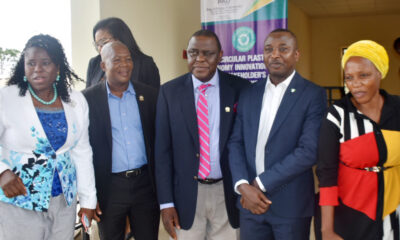
 Nation18 hours ago
Nation18 hours agoOgun, Nike Art Gallery Set To Transform Olumo Rock
-
Social/Kiddies19 hours ago
Need For Girl-Child Education In Society
-
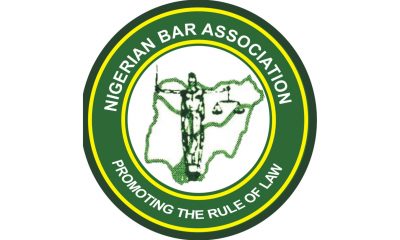
 News7 hours ago
News7 hours agoNBA President Sues For Workers’ Protection, Better Wage
-
Politics19 hours ago
Gunmen Disrupt Political Rally In Bayelsa ….As Turnah, Others Emerge New Associates’Leaders
-
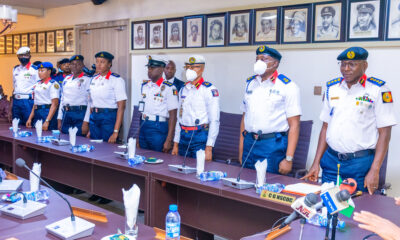
 Rivers19 hours ago
Rivers19 hours agoSecurity Agencies Engage Rivers Communities On Pipeline Protection
-
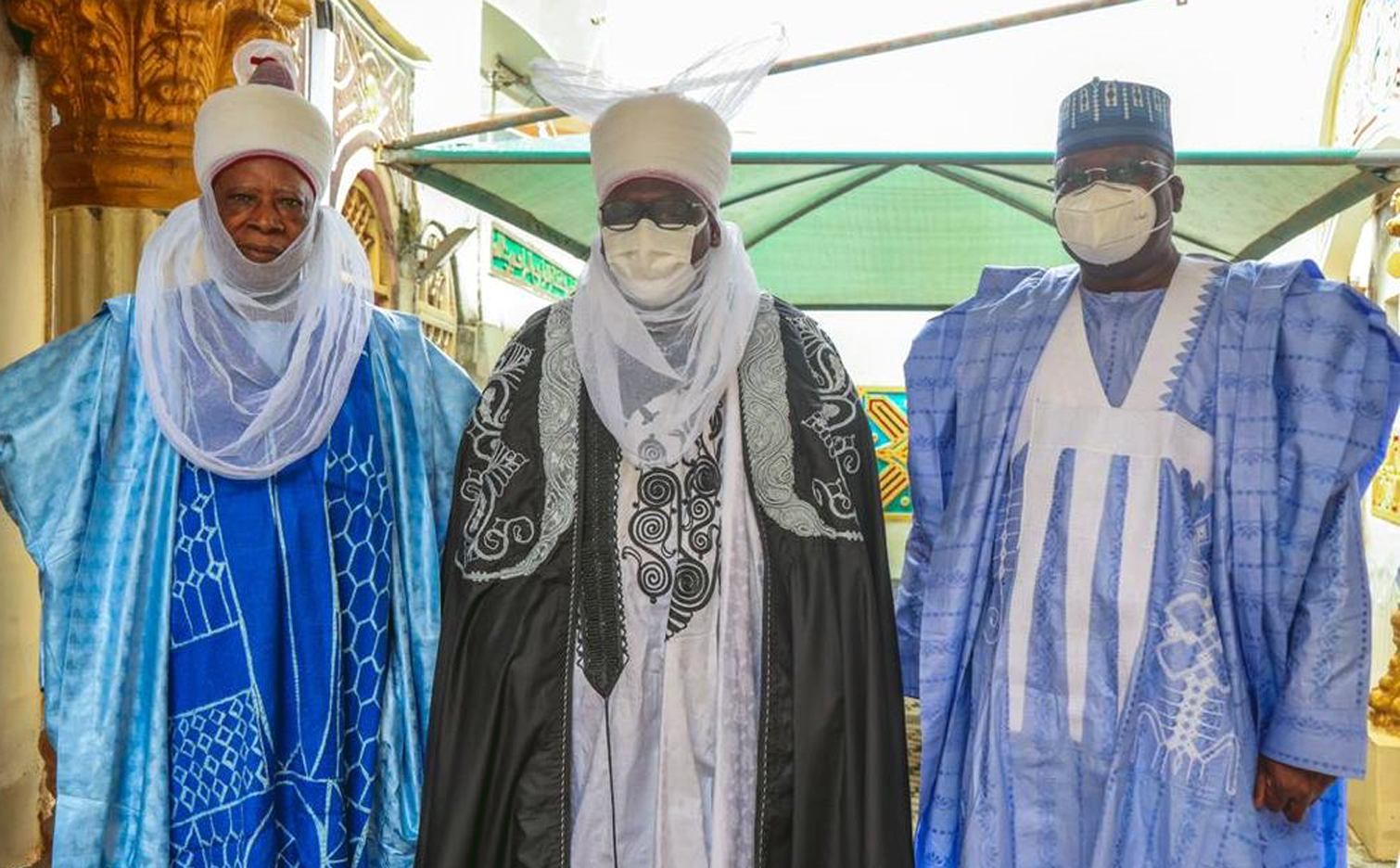
 Nation18 hours ago
Nation18 hours agoNasarawa Varsity Student Commits Suicide
-
Business19 hours ago
Smuggled Rice Tops Seized Items List In 2025

